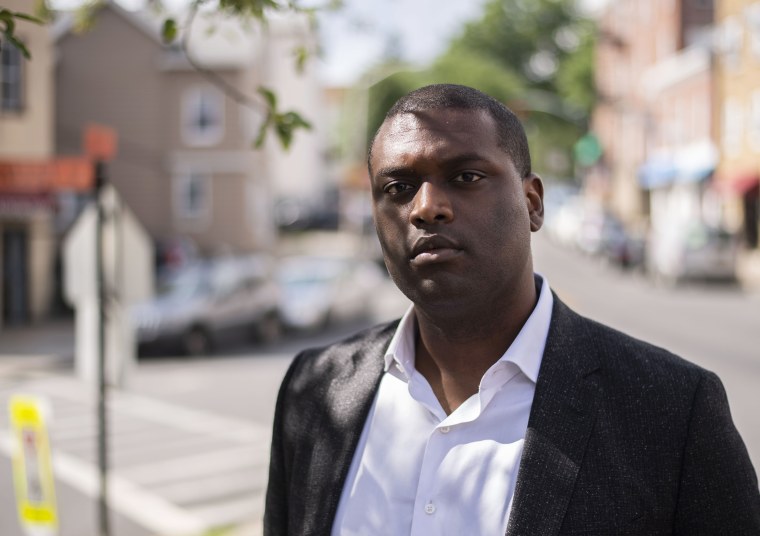The House of Representatives is poised this week to vote on the Equality Act, a landmark assemblage of LGBTQ anti-discrimination measures that’s gotten strong support from President Joe Biden.
If passed, the law would explicitly provide protections to LGBTQ people across key areas, including employment, housing, education, public accommodations and federally funded programs.
But one provision in the bill could also have a big impact on how the gay community interacts with the American legal system. It would bar attorneys from rejecting prospective jurors simply because they are LGBTQ.
Though there are some classifications that cannot be used as criteria for pre-emptive exclusion during jury selection — including race and gender — sexual orientation and gender identity aren’t among them currently.
That means a litigator can make sure a lesbian plaintiff in a discrimination suit has an all-straight jury. And a prosecutor can pre-emptively strike an LGBTQ juror from a case involving a transgender defendant.
Right now, Section 1862, title 28 of United States Code prohibits exclusion from jury service “on account of race, color, religion, sex, national origin, or economic status.” The Equality Act would amend the statute’s definition of sex to explicitly include sexual orientation and gender identity.
Sasha Buchert, senior attorney at Lambda Legal, an LGBQT rights group, said the provision can “help ensure that LGBTQ people are treated equally under the law.”
“The need for a fair jury selection process is especially important to the transgender community because a disproportionate number of transgender people come into contact with the criminal justice system,” she told NBC News.
Only eight states expressly prohibit peremptory challenges against LGBTQ jurors, according to the Human Rights Campaign. Efforts to pass a federal law have failed at least four times, most recently in 2019.
Without clear guidance, it is “certainly possible” a case on the matter could reach the Supreme Court, Buchert said.
Last week Rep. Mondaire Jones, D-N.Y, introduced the Juror Non-Discrimination Act of 2021, a standalone bill that could make sexual orientation and gender identity protected categories in jury selection even if the Equality Act fails to cross the finish line.
“Juries are supposed to be reflective of the community,” Jones told NBC News. “But we don’t meet that constitutional standard when we allow entire swaths of the community to be kept out.”
The issue was first addressed by the courts in a 2014 pharmaceutical suit involving HIV drugs, when Judge Stephen R. Reinhardt of the 9th Circuit Court of Appeals stopped Abbott Laboratories from dismissing a gay man from the jury.
“Gays and lesbians have been systematically excluded from the most important institutions of self-governance,” Reinhardt wrote in his opinion. “Strikes exercised on the basis of sexual orientation continue this deplorable tradition of treating gays and lesbians as undeserving of participation in our nation’s most cherished rites and rituals.”
Critics say it’s almost impossible to prove why a potential juror was rejected. If accused of striking someone because of their sexual orientation or gender identity, trial lawyers can always deny doing so and come up with another reason within the law. In the Abbott Laboratories case, attorneys for the company never gave a rationale for their peremptory challenge. It was Reinhardt who decided the reason was because one juror had mentioned his male partner during voir dire.
But the fight is personal for Jones. As a gay Black man and an attorney, he said he’s “distinctly aware of the discrimination that is permissible in the courtroom.”
And he doesn’t want to leave a potential remedy in the hands of the judicial system.
“We cannot rely on the Supreme Court, especially one with a 6-3 conservative majority, to evaluate our rights on a piecemeal basis,” he said.Jones, a former litigator in Westchester County, said if either the Equality Act or the Juror Non-Discrimination Act is enacted, “it will tell members of the LGBTQ community that there’s no place for discrimination in this country, starting with where equal treatment under the law comes from. There’s no other place that’s more American than our judicial system.”
He’s optimistic about the Equality Act’s chances but says there’d be a certain poetry if his first bill to become law was “one that affords dignity to the LGBTQ community.”
“I spent most of my life deathly afraid of people finding out I was gay,” he said. “I never thought someone like me could even run for Congress, so this would be extremely meaningful.”


